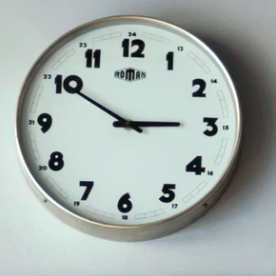168 Hours: What I’ve Learned Tracking Every 15 Minutes of My Week

For the past two weeks I’ve been tracking every 15 minute interval of my life. I borrowed this time-tracking practice from Laura Vanderkam, who writes helpful books including 168 Hours, which outlines the practice in a lot of detail.
One of Laura’s principles is that “you have more time than you think.” Through her research, she’s found that most people who claim to work more than 50 hours a week tend to over-report their work hours, sometimes dramatically so. In other words, a lot of the time they think they’re working, they’re not. It’s not just that their priorities are out of order; they also waste a lot of time.
I was happy with my productivity and work habits until a year or two ago. Then I began feeling frustrated, constantly carrying the sense that there were never enough hours in the day—though of course I had access to the same amount of hours as everyone else. Even more, being self-employed I have a lot of freedom in how I plan and spend those hours. I’m careful about commitments that aren’t rewarding, I try to have no more than two meetings or extended phone calls a day, and so on.
Still, like I said, I’ve been frustrated.
I don’t have all the answers yet, but I’m pretty sure that some of them will be found through this time-tracking process. (If you’d like to try it for yourself, download a free spreadsheet from Laura’s site.)
What I’ve Learned So Far
A few early observations:
1. Time tracking takes time! But mostly it takes mindfulness.
Learning to monitor what you’re doing every 15 minutes takes some getting used to. I often find myself looking up and suddenly realizing I’m not sure what I’ve done for the last 40 minutes, sometimes longer—which of course is notable in itself.
On the positive side, I like seeing the columns fill up. I can tell there are patterns to be deciphered and improved upon.
*There’s an option to track your time every half-hour if fifteen-minute intervals feels excessive, but so far I’m thinking I’ll stick with fifteen.
2. The mere act of tracking my time helps me be more intentional.
When I know I have to account for my time, even if only to myself, I find myself making wiser decisions. I plan my days more carefully. I started writing this post a few days ago, but I’m finishing it while waiting for a replacement driver’s license at the DMV.
It’s not unusual for me to productively use waiting time. I think what’s different is that today I made this my default state instead of just looking at my phone or zoning out. I knew I’d need to account for what became a 30-minute wait, so I made sure to use it well.
3. Momentum matters.
Week I of tracking my time flew by and I only got behind a couple of afternoons. With a trip to New York City and a few other things that threw off my schedule in Week II, I got much more behind. There’s definitely a sense of momentum or inertia to this process: stay on track and you’ll want to keep it going, lose a few hours and you’ll feel discouraged.
Laura notes that most people have irregular weeks, but you shouldn’t wait for a “regular” week to start tracking. Disruptions happen in every week. I always have different projects to work on and I typically travel every week, so if I waited for a “normal” week at home I’d be waiting a long time. If I continue this discipline beyond another couple of weeks, I’ll need to make sure I integrate it into my traveling life.
4. I don’t feel guilty about intentional time that isn’t spent productively.
I don’t really have hobbies (I’ve tried!) and I sometimes say that relaxing stresses me out.
There are a lot of intervals I filled up with items “reading,” “walking to gym,” “phone call with a friend,” or even “search for mistake fares for post-WDS Asia trip.” And I liked that! I don’t feel that these things detract from my other goals at all. I don’t want to avoid or minimize them; in some ways I’d like to do more of them.
What I want to avoid is wasted time. Almost every day I have numerous 15-minute intervals that I don’t know what to label because I don’t remember what I did. This, at least for me, means that I frittered away the time without doing anything productive or taking time for myself in an intentional way.
***
So what do I do with this info—or to rephrase, if you try it out, what do you do with the info you gain? Well, I’m not completely sure yet. Like I said, simply paying attention to it as I go is helping a bit on its own. I’d like to do more analysis with the data once I have another couple of weeks of good reporting.
In other words, I’m hoping to rally for Week III and gain more insight.
###
Image: Eder Pozo







